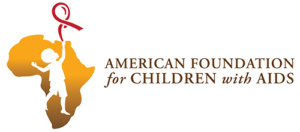Clean water can do much more than you may think, especially for children who have less to protect themselves.
There are two keywords to take into consideration when it comes to the reasons why access to clean water can drastically enhance people’s lives. One of them is hydration and the other is sanitation.
THE IMPORTANCE OF HYDRATION
It is not hard to understand why water is important for humans. Water comprises about 75 percent of human body mass and is a major component in each cell. It is said that 80 percent of the human brain consists of water. One’s bodily functions are largely dependent on water. Studies show dehydration by as little as 2 percent can impair one’s short-term memory and concentration.
Dehydration is oftentimes accompanied by electrolyte imbalance which can cause serious heart problems and can occur very quickly on hot and/or humid days. It is said that one can drop 2 percent of water from their body in less than 2 hours when working outside on a hot day.
Orphaned children have many chores to take care of every day, some of which require them to stay in the sun for a long time. Orphans are impoverished without parental care or financial support, which results in older children having to support and take care of their younger siblings, possibly other sick family members as well. Their chores and work may include physically straining tasks such as getting water and wood for cooking (they may have to walk a long distance, or on bad roads), farming/taking care of livestock, looking for and selling items on the streets, as well as domestic tasks. In most AIDS-stricken regions in Africa, the climate tends to be harsh. With poor nutrition and lack of access to clean, safe drinking water, exposure to hot, humid weather while doing these tasks can be extremely dangerous.
WHAT UNSANITARY WATER DOES
Contaminated water has bacteria and viruses that can cause cholera, typhoid and other diarrheal diseases along with malaria, which is one of the leadings causes of mortality in developing countries, which is caused by mosquitoes that breed in dirty water.
Pacific Institute Research Report, compiled by Peter H. Gleick, states:
“If no action is taken to address unmet basic human needs for water, as many as 135 million people will die from these diseases by 2020. Even if the explicit Millennium Goals announced by the United Nations in 2000 are achieved – unlikely given current international commitments – between 34 and 76 million people will perish from water-related diseases by 2020. This problem is one of the most serious public health crisis facing us, and deserves far more attention and resources than it has received so far. (Gleick, 2002)”
Diarrhea causes serious dehydration if proper rehydration is not accessible. People may try not to drink water to stop diarrhea if not educated about rehydration, but drinking plenty of water is vital to prevent dehydration when suffering from diarrhea. Also, it is likely that by losing water from the body that their electrolyte balance is off. To treat diarrhea, oral rehydration therapy (ORT) is widely carried out.
ORAL REHYDRATION THERAPY
ORT uses solution that contains water, salt and sugar and the solution is easy to make if ingredients are accessible. This is why having access to clean water is very important. While oral rehydration solution (ORS) typically comes in pre-measured sachets ready to be mixed in with water, making home-made ORS will help respond to diarrheal symptoms quickly when manufactured ORS is not available. The recipe of basic ORS looks like this:
2 tbl. sugar : 0.5 tsp. salt : 1 quart water
One dollar donated to Project One Million can provide 1 year supply of clean water. This will make a huge difference in lives of children and adults in need. AIDS orphans, without parental support, struggle to get their basic needs met, and access to clean water is one of them. Would you like to help them with their daily needs and let them know that their lives matter, and that they are not alone? If so, please consider making a donation to Project One Million, spread the words through social networking tools like personal blogs, Facebook, Twitter, Tumblr… or whatever you use. Let’s make a difference together.
Mariko Siegert

